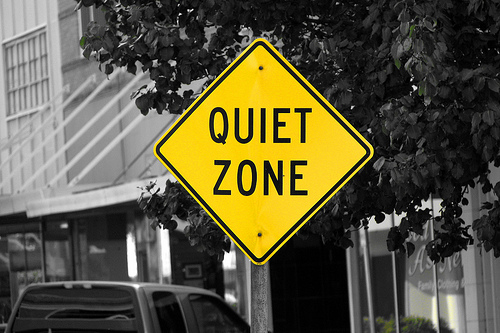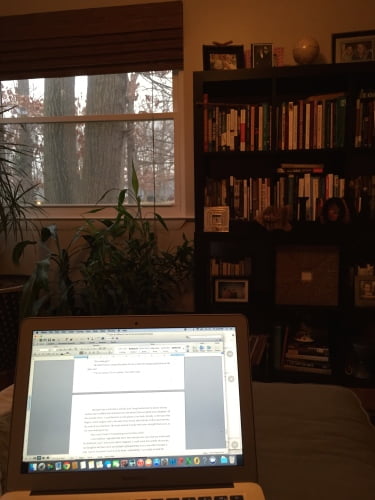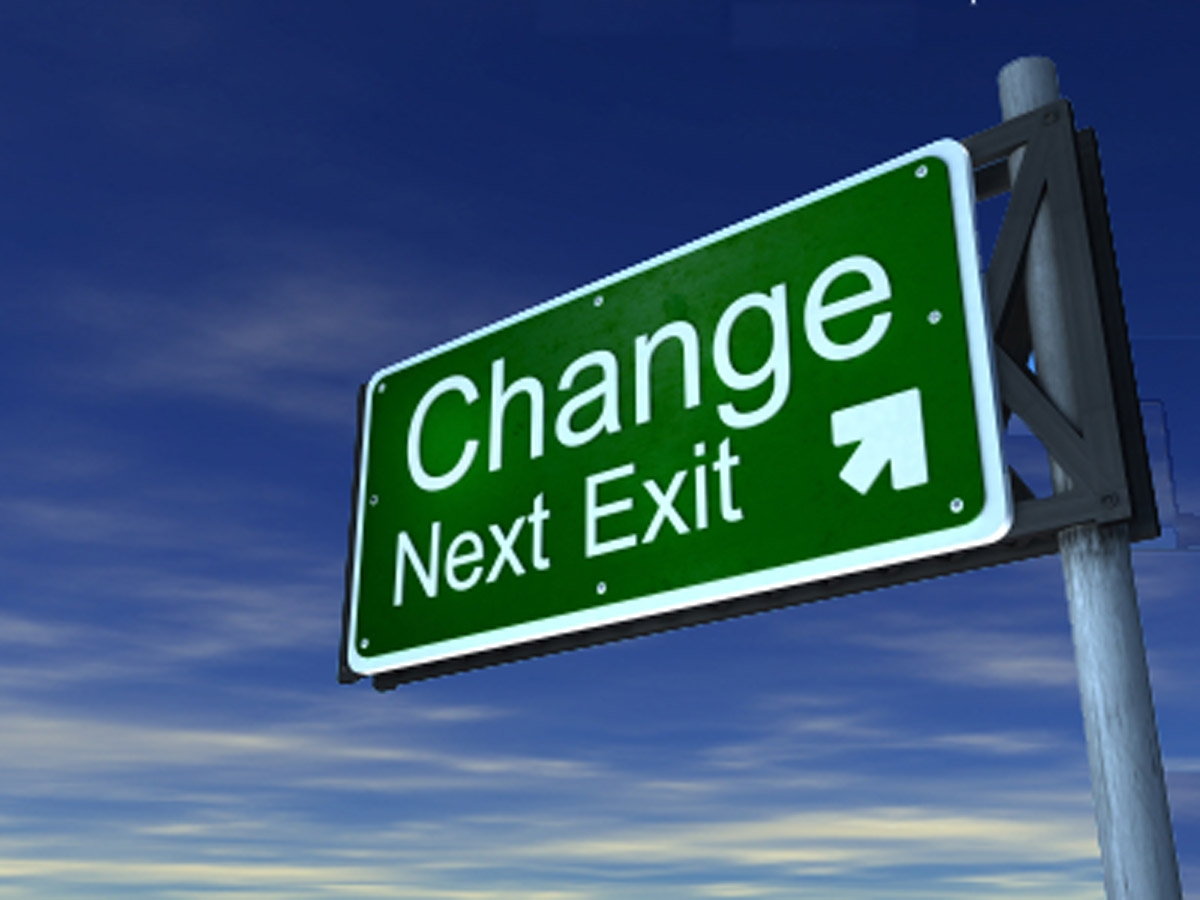Is there quiet in your work/ life/ living space? Or does it feel overcrowded?
Last year, our family took on a bathroom remodeling project bringing a 1950s ish bathroom into the modern age (I know you can picture the ugly yellow tile). It was to take 2 weeks tops-- such an easy transformation (so says our contractor). But as the weeks rolled by the project slowed down fast. In the midst of it all, we discovered something really wrong with the pipes below the house and so on (this always happens when you start a project right?). It led to so many other things we needed to do to this house. Our quiet in daytime house became a circus and stayed that way for a while. I kept saying to my husband "I can't hear myself think anymore!" Can you relate?
To our lives full of so much action (no matter if you are remodeling or not), I want to offer this week's word: listen.
Listen: to be alert; to catch an unexpected sound.
I love this definition of listening because it reminds me that listening is active. And listening is not always about being in a perfect quiet space. For listening connects us to the unexpected sounds all around us-- what has always been there maybe but we finally notice!
You can listen in a noisy house, a busy day or even during a sleepless night when your mind is bubbling over with mental chatter. Even in moments that feel crowded, you can be alert to unexpected sounds . . .
So, I am wondering: what kind of listening have you been doing lately?
Recently I tuned into a podcast conversation between authors Brene Brown and Glennon Doyle in which they dug deep into all the commotion around them. They explored the lists we all carry in our heads about what being a "good person" or "having a good life" means-- and how these lists hold us back from hearing what our lives are trying to show us.
And then they both spoke of how beautiful their lives have become as they made room to listen. Practically, this listening looked like being able to say to their families: "Hey, I need some alone time because I'm really depleted" or telling a friend: "I just can't go out tonight."
Listening, in their case brought boundaries that gave them new life!
So for you, I'm wondering what is your soul trying to communicate that you don't yet have ears to hear? How can you open your heart to some new unexpected sounds around you?
What I know is: there's so much that God is longing to show you, clarify for you, and encourage you with but you have to first listen. May today and the days ahead surprise you with it's beautiful new sounds. Cheering you on-
XO
Elizabeth
 I never like telling someone no.
I never like telling someone no.
I never like hearing no.
I don't like that I just picked out a "no" clip art for this blog post. It's feels so harsh to me. And I don't like to be harsh.
Because isn't it true?
Telling someone no brings on disappointment. It ruffles up community life. It creates disconnection. It's stop word after all.
Hearing no messes with a sense of value. It can rob a person of their worthiness (if we let it). It usually feels like a door slam shut even if it's messenger approaches with respect and kindness. It's not a word radiating welcome.
And we love connection and welcome. So there's no wonder we feel that no is such a bad word. Or is it?
Let's start with this: time and time again I've learn that "No" is one of the most spiritual words I can hear. No is one of the most spiritual words I can offer someone else.
Here are two gifts of hearing the word no and saying it to others.
I was listening to a podcast recently by one of my favorite authors, Elizabeth Gilbert.
When asked the question about what she gave up to serve her creative process, she talked about the hardship of the word "no."
She bemoaned all the people who felt hurt by her "no's" and how it cost her friends, both personal and professional that she thought she'd have in her life forever. And visa versa.
Elizabeth reminded listeners that: "You have to sit with the discomfort that comes from the sacred no."
And here was the zinger question (paraphrasing here) she offered: what do you need to say no to so that you can fulfill why you are here on this planet?
This question is one that has stuck with me ever since I heard it.
Both to toughen me up when rejections come (believing that even the most devastating missed opportunities remind me that God is God and I am not) AND to have the courage to reject anything out of line with WHO I am made to be and HOW God wants me to use my time on earth.
There are a thousand amazing things to be and do, of course. Yet not all of these things were meant for me (or you either)!
So I'm wondering to WHO do YOU need to say "no" today?
How do you need to lick your wounds and move on from a "no" that has long kept you paralyzed?
What do the "no's" in your life have to teach you?
Let's keep learning and listening together. And saying no. It's good soul work.
 Do you remember the last time you experienced a quiet place?
Do you remember the last time you experienced a quiet place?
I’m coming off of a really busy week as I shared in meetings at the White House, in the halls of Congress and as a Oklahoma delegate at the National Prayer breakfast as part of my work with Feed the Children.
To make all of these things happen, the pace was crazy around our house. We got up too early. We went to bed too late. And we didn't eat at home every night (if any night at all).
And, it was a week where the title of the sermon I’d knew I’d be preaching last Sunday called, "Finding a Quiet Place" simultaneously felt like just the message I craved to hear and convicted me at the same time.
Mark 1:29-39 had a word for me.
For Jesus, in his early days of ministry, he “hit the ground running” as the expression goes and “there was no rest for the weary.”
He recruited his disciples. He organized them into a group. Together they, attended services at a synagogue and Jesus healed a person with an “unclean spirit” on the Sabbath.
And by Mark 1:29, Jesus leaves the synagogue and goes to the house of Simon where he lives with his wife and his mother-in-law. We learn that Simon’s mother-in-law is sick with a fever. Verse 31 says that Jesus takes her woman by the hand and lifts her up to healing.
So, without taking a breath, Jesus is at it again. Word spreads about this miracle. Other sick ones or possessed with evil spirits come to find Jesus. They seek healing too. Everybody wants something.
And: “the whole city was gathered around the door.”
Was Jesus claustrophobic? I hope not!
People gathering for miles and miles, desperate to see him, desperate for a cure, desperate most of all for seeing, knowing and believing they were loved.
They come at sundown.
And we get no indication that Jesus turns any way. They stay for hours. Burning the midnight oil . . .
Can you imagine how Jesus felt after the last one left his door?
Sure, it was exciting.
Sure, it was full of the power of God. Lives were changed forever!
Sure, it was what he came to earth to do.
But, remember Jesus came to earth with a body like yours and mine—a body that required food and water and rest, especially after long days.
And, so I know Jesus must have been exhausted.
The kind of exhaustion that would have made anyone want to sleep in the next day or take the rest of the week off or not answer the door the next time someone knocked on it.
But this is not what Jesus does.
No, verse 35 tells us this, “In the morning, while it was still very dark, he got up and went out to a deserted place and there he prayed.”
Jesus counteracts the pace of life that might have reflected back to him: “Go, go. Do more. Do more. You’re only going to be on earth for a short time. Make every minute with people count.” And seeks out a quiet place.
Alone.
And in this quiet place, Jesus centers his life on its greater purpose.
Why?
 Do you remember the last time you were on an airplane? There’s the standard, the plane is about to take off, speech, isn’t there?
Do you remember the last time you were on an airplane? There’s the standard, the plane is about to take off, speech, isn’t there?
Buckle seatbelts. Put up your tray tables. Store away your carry-on bags.
And then, if there’s a loss of cabin pressure, oxygen masks will drop from the ceiling.
But, this part of the speech comes with it’s own unusual instructions. When it comes to the oxygen masks, what are we told to do?
If we are sitting with children, we’re supposed to put our own masks on before putting on theirs. And such seems so counterintuitive to our protective love, doesn’t it?
Yet, we learn we’re asked to do this because if we’re running out of air, there’s no way we’d have breath to assist them.
And in the same way, such is the principal Jesus modeled for us.
He says: put on your own oxygen mask first.
Find your quiet place. Find your deserted place.
Slow down. Reflect. Renew. Do all of this before you charge forward into another commitment, another to do list or another email.
It’s so much easier to ignore that tug of the Spirit on our hearts.
We make one more phone call. We read one more chapter in a book. We watch one more hour of TV.
And by the end, there’s not space for a quiet place.

But, if we are going to follow in the way of Jesus, then finding our quiet place is a must.
Though some churches might tell you otherwise, I don’t think there’s some magic formula for finding quiet places to be with God.
For some of us, it might be rising before the sun, sitting on the couch by a window watching the sunrise with prayer list in hand.
For others of us, it might be taking a walk in our neighborhood midday with the dog, breathing in and out deeply being still enough to know that God is God.
Or, for others it might be simply pausing before you let your toes touch the floor to say “Thank you God for this day. Use me in it.”
For me, one of my favorite quiet places is in an oversized chair in a room surrounded by my favorite books with a great view of the trees in the yard with the squirrels who run up and down the branches at rapid pace, depending on the season.
I love going to this chair as many mornings as I can (though not too early).
I bring my breakfast to this chair. I sometimes read, sometimes write but often am just still.
It’s often a battle to get myself there—as much as I love it! Oh, I can come up with thousand excuses NOT to be quiet.
But, in my heart, I know it’s the only way for me to find communion with God.
Where's your quiet space?
 While recently attending a writing workshop, the presenter offered some advice that hasn't left me since I first heard it. "If you want to write well, if you want to connect with your audience," she offered, "You always must tell the truth. There's nothing that can spoil a good story faster than a character who the readers know is not forthcoming in their words."
While recently attending a writing workshop, the presenter offered some advice that hasn't left me since I first heard it. "If you want to write well, if you want to connect with your audience," she offered, "You always must tell the truth. There's nothing that can spoil a good story faster than a character who the readers know is not forthcoming in their words."
Similarly, when I think of the local church and what its hopeful future means to so many of us, I can't help but think of my writing teacher's advice. In the age of decline, division and discord of modern Protestant life, we also need to tell the truth.
How many times have you heard such whispers in church life: "I am not sure my church is willing to invite a woman to be senior pastor yet" or "Could you please not mention gay people when you come speak at the conference?" or "Could you not bring that loud music into my worship service?"
And then the conversation goes on: "You just don't understand how things are. You can't ask me to change that right now even if I wanted to . . . "
But this is what I wonder: is the real problem our biblical understanding of a women's place in ministry? Is our real problem with what God thinks of gay and lesbian people? Is our real problem standards for what meaningful worship looks like? Or, is this all about what makes us afraid?
This is what I think is true: we are afraid. I know because I was once afraid of all of these things too.
We're afraid of what the church might look like if more women, especially younger women, started preaching from our pulpits, dedicating our babies and baptizing our children. All that estrogen in church council and deacon meetings might just lead us in unknown directions of ministry.
We're afraid of the new paradigm that would come from sermons in higher pitched voices or the need to create pastoral maternity leave policies.
Some of us fear what the church might look like if we openly welcomed gay and lesbian members into our congregation. For, without that "sin" to label as most hated in the eyes of God, we might have to look deeper into our own hearts and see that we too have fallen short of God's best.
We're afraid of how we might feel if we were wrong about God's inclusion policy.
Some of us fear what the church might look like if we lived more authentically with one another. Instead of blaming the change in the church music program for causing a scene at choir practice or making us unhappy, we'd actually be able to say, "My marriage is in trouble," "I don't know how I am going to get through the teenage years with my son" or "I think I am going to lose my job."
We're afraid to let people see the broken parts of us, the parts that make us human.
But, do we want our fears to stunt our growth as communities of faith?
Do we want our church families to be even more divided simply because we are afraid to listen to something new?
No matter where ongoing discussions about "What is the future of the church?" take us in all the places we are having them, I hope more spaces are made available for us to be honest.
We need to "Tell it like it is," as my grandmother used to say.
We need to speak our fears aloud what we are questioning or searching for answers about without fear of judgment.
We need to know that change is hard and doesn't happen overnight, but at the very least we have to start by listening to each other, listening to what is underneath what we are saying, and make space for one another to be heard.
"But Jesus often withdrew to lonely places and prayed." Luke 5:16
What does this practice look like in our modern context?
 Last summer I spent a week of training for my spiritual director certificate at the Interfaith Institute in Berkeley, CA. Throughout the week, my cohort explored the practice of deeply listening to one another through a variety of different activities. We shared stories. We worked with images. And we even went on solitary walks. Now, eight months later, the memories of this experience are some I still treasure dearly.
Last summer I spent a week of training for my spiritual director certificate at the Interfaith Institute in Berkeley, CA. Throughout the week, my cohort explored the practice of deeply listening to one another through a variety of different activities. We shared stories. We worked with images. And we even went on solitary walks. Now, eight months later, the memories of this experience are some I still treasure dearly.
And, there's one gem I gained from our Hindu instructor I've thought a lot about this Lent. She said, "If you want to listen to God, then you need to limit media you are taking in." Or in other words she offered: "If you want to be close to the Divine, ask yourself, why are you watching so much tv or listening to so much of the radio or watching movies on Netflix online?" Her words were practical and to the point.
I love media like most of you. Sometimes I think my computer is attached to my body. Sometimes I find myself sad when I don't have a day to catch up on the recorded shows on my DVR box and just veg out. Sometimes the silence of driving in the car with the radio is deafening. My generation loves noise.
But then there are moments when I truly turn it all off and I'm so glad I did.
On Sunday night, Kevin and I were cooking in our Oklahoma apartment's kitchen. The counter space is limited and we were side by side. He was chopping fruit. I was baking bread. We were preparing to host breakfast the next morning for the country directors from Feed The Children in town for the week.
We had both previously commented how excited we were about watching the Oscars. Being movie buffs, we couldn't wait to see who won what and how funny (or not) the jokes were. But then a strange thing happened. We came home from the grocery store and we didn't turn the tv on.
I don't know how, but we forgot about the Oscars.
We unloaded the car, cooked in silence for a while and then began to talk to each other-- sharing details about our weeks that we would have missed if we didn't take this time of pause. I learned more about some of Kevin's deep burdens and he learned more about mine.
I think that listening to God is like this. I think this is what Jesus was modeling for us when he went to the lonely places and prayed.
Sure, we all might have intentions about what we are "doing" this Lent to grow in our faith-- no sweets, no soda, exercising more or even drinking more water, but what good are these things if we don't allow the slower pace of life to help us listen?
Listening to what we are to do next in our daily rhythms . . .
Listening to what our primary relationships need most from us . . .
Listening to what we can only hear if we turn our tvs and computers off . . .
In reading through the gospels, it seems to me that as much as Jesus was "on" and busy, he was always looking for a retreat, quiet and silence. Thank goodness that it is this season, that reminds us every year that the most important thing we can all do is unplug and listen!